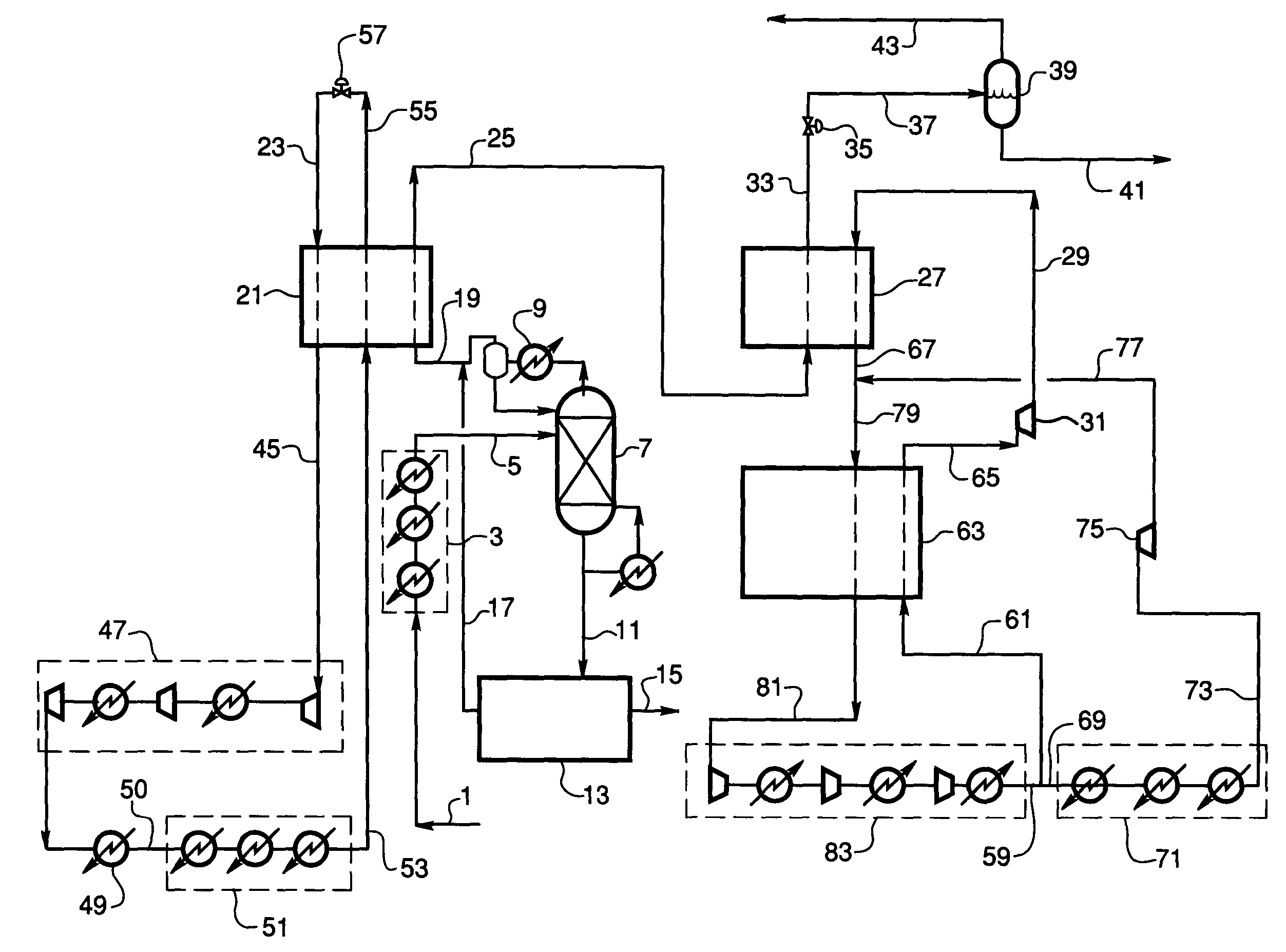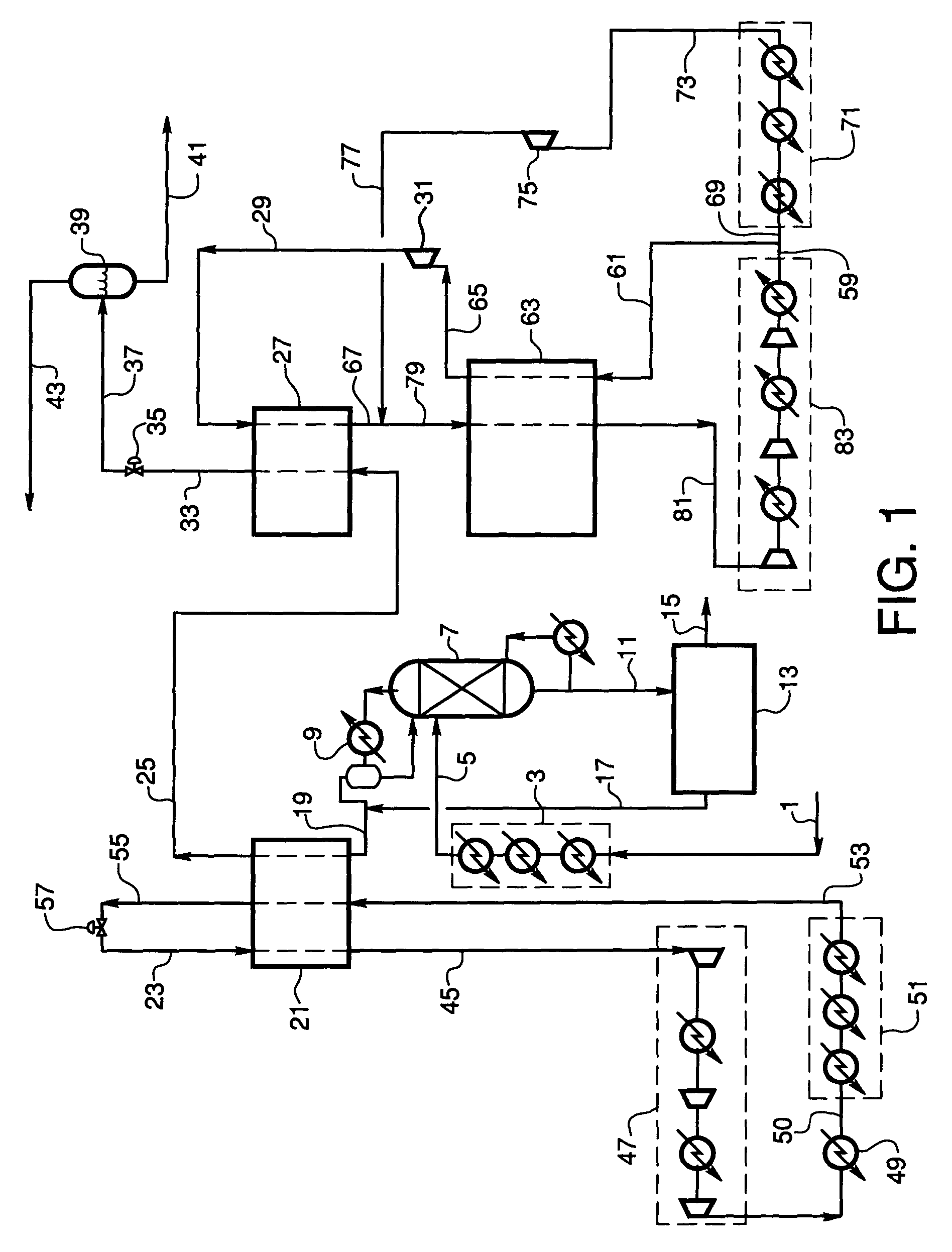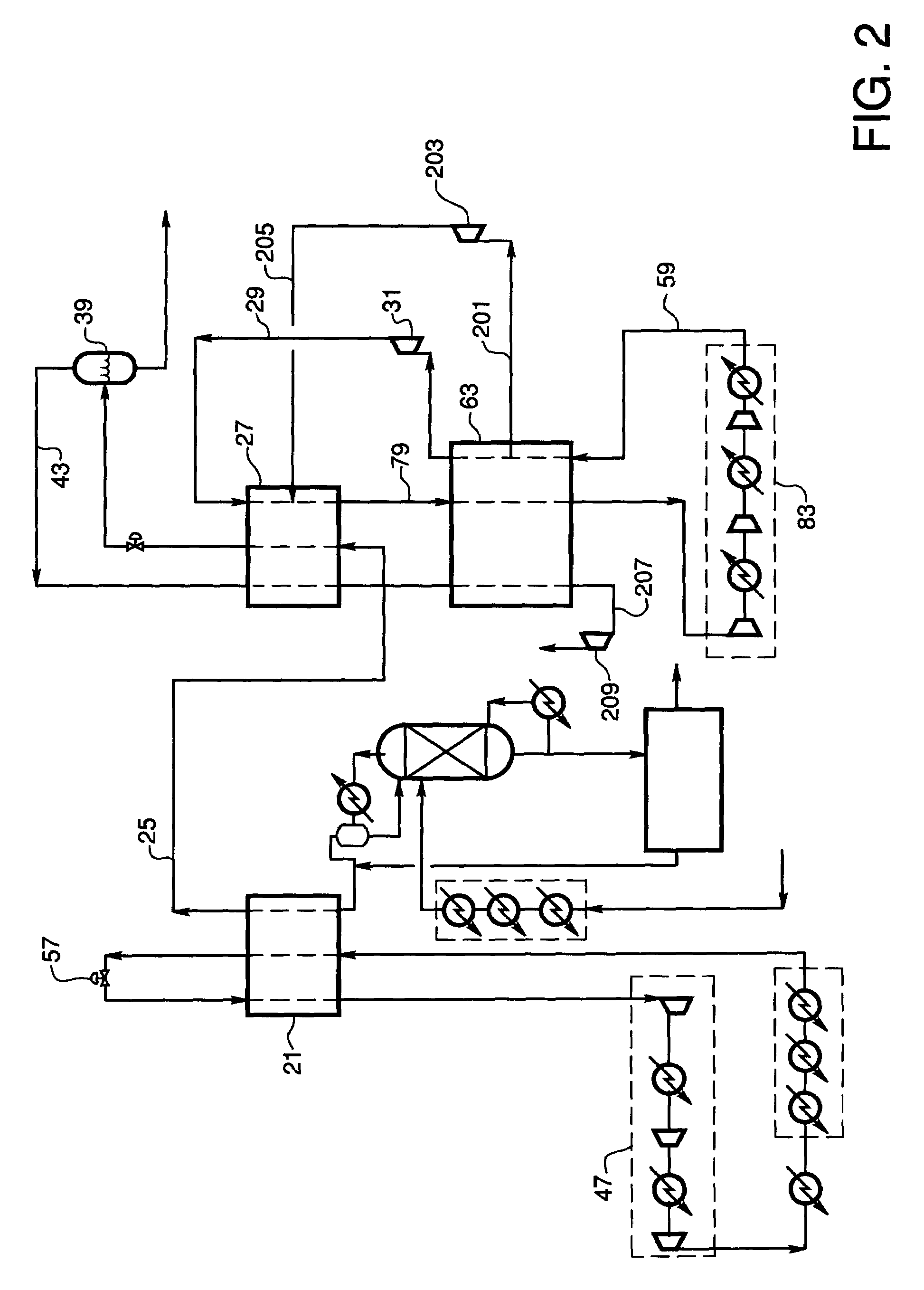Hybrid gas liquefaction cycle with multiple expanders
a gas liquefaction cycle and expander technology, applied in the direction of compression machines, refrigeration machines, solidification, etc., can solve the problem of very energy-intensive process of natural gas liquefaction
- Summary
- Abstract
- Description
- Claims
- Application Information
AI Technical Summary
Benefits of technology
Problems solved by technology
Method used
Image
Examples
example
[0150]The embodiment of FIG. 1 is illustrated by the following non-limiting Example. Natural gas feed in line 1 is provided at a flow rate of 59,668 kgmoles per hour and has a composition of 3.90 mole % nitrogen, 87.03% methane, 5.50% ethane, 2.02% propane and 1.55% C4 and heavier hydrocarbons (C4+) at 27° C. and 60.3 bara. The feed has been cleaned and dried in an upstream pretreatment section (not shown), for the removal of acid gases such as CO2 and H2S along with other contaminants such as mercury. Natural gas feed in line 1 enters the first heat exchanger section 3 and is precooled to −18° C. using several levels of propane refrigeration. The precooled natural gas feed stream in line 5 enters scrub column 7 where the heavier components of the feed, pentane and heavier hydrocarbons, are removed to prevent freezing in the liquefaction process. The scrub column has an overhead condenser 9 which also uses propane refrigeration to provide the reflux to the scrub column. The bottoms ...
PUM
 Login to View More
Login to View More Abstract
Description
Claims
Application Information
 Login to View More
Login to View More - R&D
- Intellectual Property
- Life Sciences
- Materials
- Tech Scout
- Unparalleled Data Quality
- Higher Quality Content
- 60% Fewer Hallucinations
Browse by: Latest US Patents, China's latest patents, Technical Efficacy Thesaurus, Application Domain, Technology Topic, Popular Technical Reports.
© 2025 PatSnap. All rights reserved.Legal|Privacy policy|Modern Slavery Act Transparency Statement|Sitemap|About US| Contact US: help@patsnap.com



